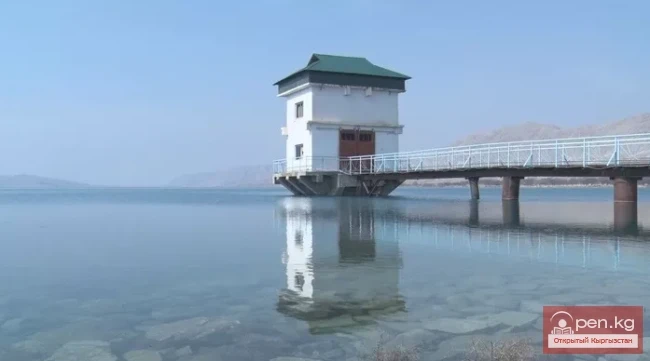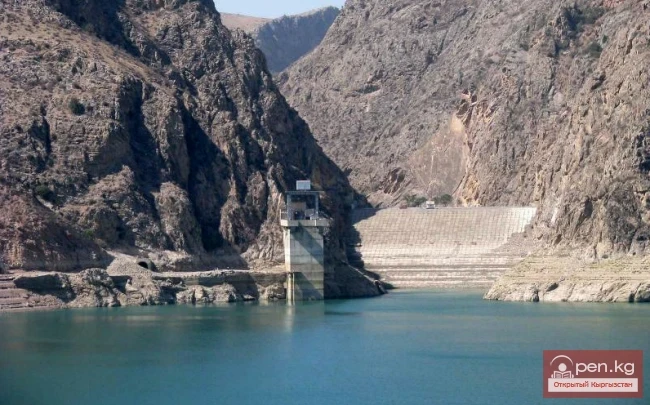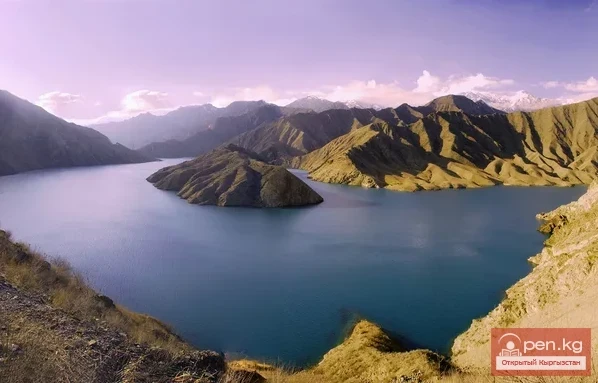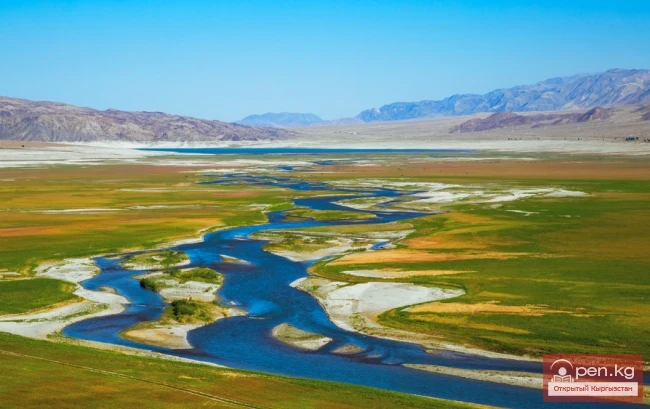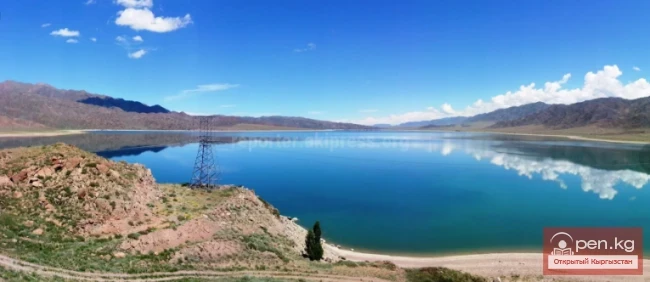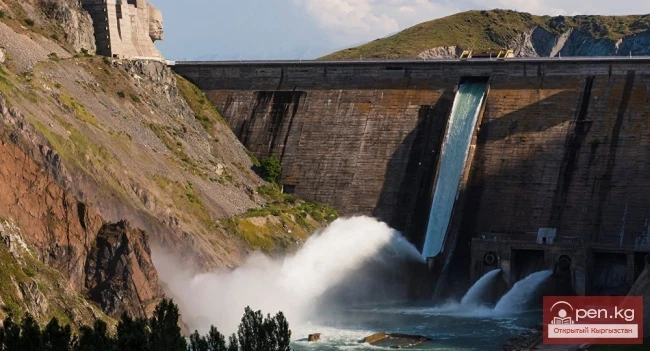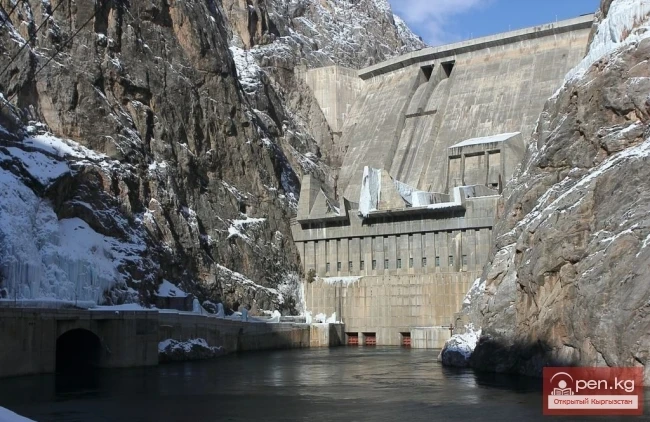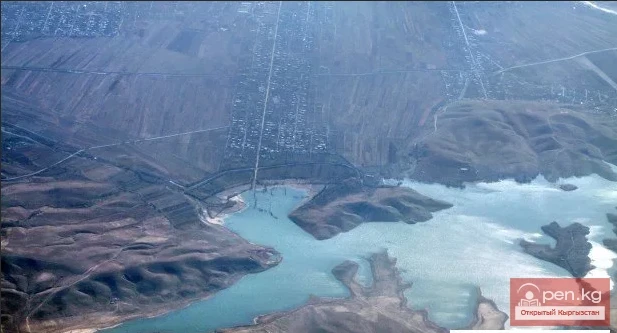
Uch-Kurgan Reservoir
Uch-Kurgan Hydroelectric Power Station — a hydraulic engineering structure, a run-of-river hydroelectric power station (HPP), built on the Naryn River, 12 kilometers from the city of Uch-Kurgan (Namangan region of Uzbekistan) and two kilometers from the Uch-Kurgan — Tash-Kumyr railway line. This convenient location for constructing the HPP was first selected by engineer Kuznetsov in 1913. On November 30, 1958, the concrete was laid in the building of the Uch-Kurgan HPP. On January 27, 1959,
